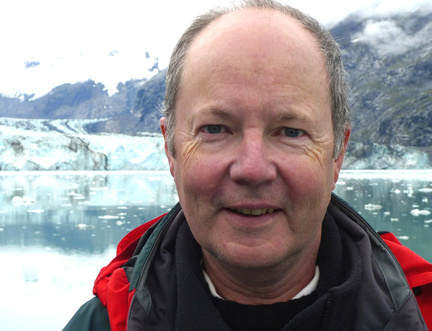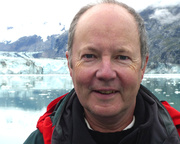Freedom in four flavours
By James Thornton

In 2018, we commissioned 51 authors from 25 countries to write essays exploring ideas about freedom for The Freedom Papers, a publication produced in partnership with Gutter Magazine. Read on for James Thornton's essay, and visit guttermag.co.uk to purchase a copy of The Freedom Papers.
We live both free and bound. There are many ways to map the contours of how we are free and where we are bound. Let us explore a four-part map to gain a vantage on freedom’s territory.
We will look at filthy freedom, enthralled freedom, constrained freedom and directed freedom.
Recently I’ve been reading the California poet and novelist Charles Bukowski. He writes about his quartet of loves: booze, writing, women and horses. He writes about how it takes years of dedicated drinking to become a professional drinker of his level. And he writes about writing as well as anyone has.
What Bukowski manages to say beneath the words is that he has gained a freedom that is unique. He levitates above the common cares of jobs and taxes, immune to life in a rat hole.
In one poem, he talks about how he felt when his place was cleaned up:
I felt better when everything was in disorder.
It will take me some months to get back to normal:
I can't even find a roach to commune with.
I have lost my rhythm.
I can't sleep. I can't eat.
I have been robbed
of my filth.
Bukowski revels in his filthy freedom. It’s an intellectual hobo’s variant on Seneca’s notion of a simple life. Bukowski’s contempt for society’s encircling coils makes him a touchstone for many searching for their way.
The second quadrant on our map is enthralled freedom. This is the fake freedom felt by anyone who is trapped by invisible tentacles and thinks they are swimming. Enthralled freedom is as old as money and the social whirl, which can bind without your knowing.
Contemporary culture, though, excels all others at enthralling. Our social evolution equipped us to be easily swept away, and it is computer culture that is perfecting the art of enthrallment. The mind’s channels are being mapped. Algorithms in the globally dominant internet companies get us to disclose our habit and preference patterns. They then learn how to manipulate us into wanting what they want to sell.
Enthralled freedom is perilous. What Trump voter, living in an information desert, and manipulated by Cambridge Analytica’s algorithms, was a free and cognizant agent? When we are enthralled, we don’t know it. When we are enthralled we sing the hymn, pick up the gun, believe global warming is a hoax, don the vest bomb, stay scared, vote for the strongman again, and again, after he’s taken away our job and our hope.
Constrained freedom lies in our third quadrant and has many kinds. There are financial constraints. We may own a small farm in Zimbabwe and not be able to pay for fuel to run the water pump. There are social constraints. We may be a woman in a country that forbids female education or favours female circumcision. There are physical constraints. We may be a Bangladeshi family displaced by storm surges whose cause is global warming.
Constraints of these kinds limit the scope of action we can freely exercise. Constraints do not dictate, though, how we relate to the events of life. Long ago I read a study done by two academics, one a psychologist and one a theologian. Their goal was to find where the saints were in America. They developed a questionnaire about how much time you helped others, how much of your income you gave away, how often you cared for your relatives’ children, and so on. They had thousands of people answer. The results were clear. Most of the saints in America were poor, overweight black women in the South. Constraints did not limit them from directing their freedom to meaningful action within the compass life allowed.
Directed freedom, then, is the fourth quadrant on our map. It is where we need to head. We get there when we wake up, raise our will, and ask how we can help.
Asking how we can help leads to a study of our constraints. If I am poor, do I act lovingly to my family? That may be the only realm I can reach. But if I am a prime minister, do I work unremittingly to alleviate poverty, wage peace, end discrimination and reduce global warming?
When we direct our freedom, and when many do so, there can be no end of progress toward the good. We can end poverty and discrimination and mitigate global warming if we harness our freedom for the common good.
So how do we relate to these four kinds of freedom?
Don’t worry about filthy freedom. It’s there as an outlier to help set your compass. Something to recall when the collar is too tight. If you want a tidied version of filthy freedom, you can take up Zen. I recommend it.
Enthralled freedom is the subtlest and deepest challenge of the twenty-first century. The tools of enthrallment are improving all the time. We walk down the street zombies, surrounded by other zombies. Facebook is only the beginning. Waking people up is the challenge.
Constrained freedom is the other great challenge. The constraints are of our making, if not our conscious devising. We can solve humanity’s problems. Already, over the past twenty years, the proportion of people living in extreme poverty has dropped by around half. Much more needs doing. After waking up, we need to raise the will to act.
Directed freedom is the meaning of life in action. Becoming awake, raising the will, dedicating ourselves to service, seeing needs and working to meet them, sensing pain and trying to alleviate it, witnessing the destruction of the environment and working to stop it, then repair the damage.
These are directed uses of freedom, the kind that give us models of women and men who changed lives and thereby changed the world.
When we shake off enthralments, raise our will, and direct our freedom, something wonderful happens. Meaning emerges. We wake every day knowing we too can change the world.
Copyright © 2018, James Thornton. All rights reserved.
Supported by the Scottish Government’s Edinburgh Festivals Expo Fund through Creative Scotland.
Look, Listen & Read
- 2026 Festival:
- 15-30 August
Latest News
 Major new partnership with Celtic Connections
Major new partnership with Celtic Connections




